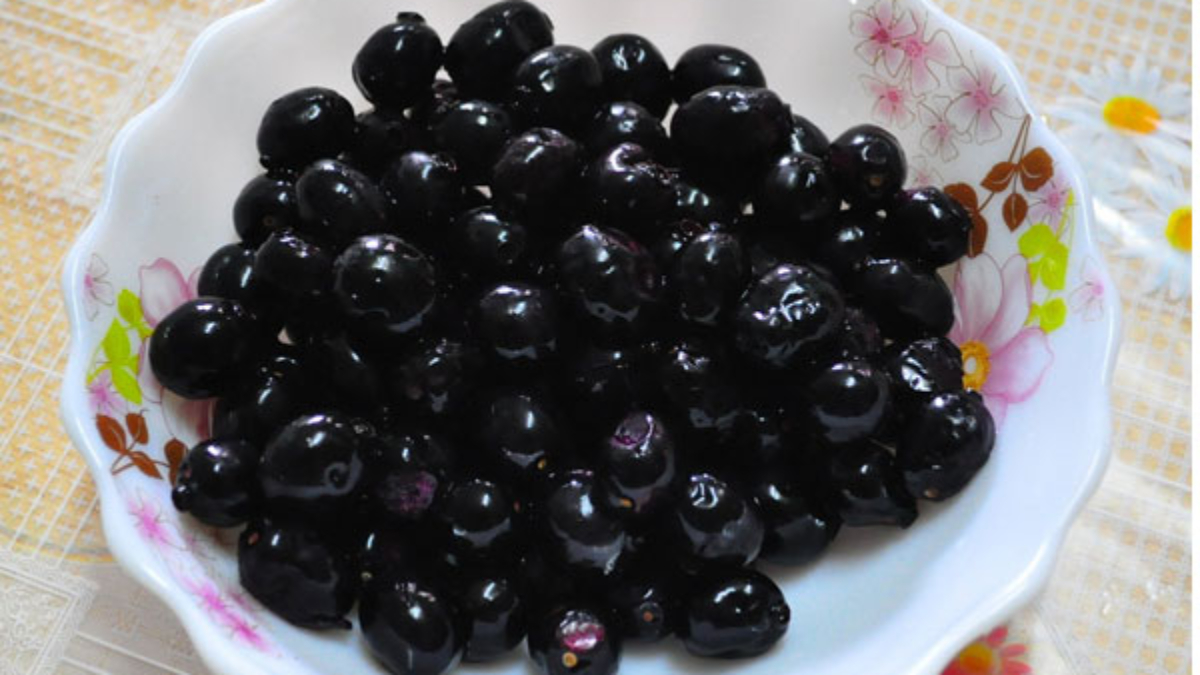Indian blueberries, commonly known as “Jamun” or “Indian Blackberry” (Syzygium cumini), are a nutrient-rich fruit with several health benefits. Here’s how they can help your body:
Rich in Nutrients
- Vitamins and Minerals: Jamun is a good source of vitamins A and C, iron, calcium, and potassium, which are essential for overall health.
- Antioxidants: It contains anthocyanins, powerful antioxidants that protect the body from free radicals and oxidative stress.
Supports Digestive Health
- Fiber: Jamun is rich in dietary fiber, which aids digestion and helps prevent constipation.
- Antibacterial Properties: The fruit has natural antibacterial properties that can help combat digestive infections.
Regulates Blood Sugar Levels
- Hypoglycemic Effects: Jamun seeds are known to have hypoglycemic properties, which help in controlling blood sugar levels, making it beneficial for people with diabetes.
- Low Glycemic Index: The fruit has a low glycemic index, which means it releases sugar slowly into the bloodstream, preventing spikes in blood sugar.
Promotes Heart Health
- Potassium: The high potassium content in Jamun helps regulate blood pressure and supports heart health.
- Antioxidants: The antioxidants in Jamun reduce oxidative stress, which can lower the risk of heart disease.
Enhances Immunity
- Vitamin C: The fruit is rich in vitamin C, which strengthens the immune system and helps the body fight infections.
- Iron: Jamun’s iron content boosts the production of hemoglobin, which is essential for transporting oxygen in the blood.
Improves Skin Health
- Antioxidants: The antioxidants in Jamun protect the skin from damage caused by UV rays and pollution.
- Vitamin A: This vitamin promotes healthy skin and helps reduce acne and blemishes.
Aids in Weight Management
- Low Calorie: Jamun is low in calories, making it a good choice for those looking to manage their weight.
- Fiber: The high fiber content helps in keeping you full longer, reducing the urge to overeat.
Supports Oral Health
- Astringent Properties: The astringent properties of Jamun help in maintaining oral hygiene by tightening the gums and reducing bad breath.
Anti-inflammatory Properties
- Natural Anti-inflammatory Agents: The fruit has compounds that help reduce inflammation in the body, which can be beneficial for conditions like arthritis.
Improves Eye Health
- Vitamin A: Jamun is a good source of vitamin A, which is essential for maintaining good vision and eye health.
Here’s a breakdown of the nutritional values per 100 grams of fresh Jamun:
Nutritional Values (per 100g of Jamun)
- Calories: ~62 kcal
- Carbohydrates: 14 g
- Sugars: ~13-15 g
- Dietary Fiber: ~0.6 g
- Protein: ~0.7 g
- Fat: ~0.2 g
- Saturated Fat: 0 g
- Unsaturated Fat: 0.1 g
- Vitamins:
- Vitamin C: 18 mg (30% of Daily Value)
- Vitamin A: ~3 IU
- Vitamin B1 (Thiamine): ~0.02 mg
- Vitamin B2 (Riboflavin): ~0.01 mg
- Niacin: ~0.29 mg
- Minerals:
- Calcium: 15 mg
- Iron: 1.41 mg (8% of Daily Value)
- Magnesium: 35 mg
- Potassium: 55 mg
- Phosphorus: 15 mg
- Sodium: 26.2 mg
- Antioxidants:
- Anthocyanins: Present in significant amounts, contributing to the fruit’s dark purple color.
Key Points
- Low in Calories: Jamun is a low-calorie fruit, making it a healthy choice for snacking.
- Rich in Vitamin C: This helps boost immunity and skin health.
- Good Source of Iron: Beneficial for increasing hemoglobin levels.
- Contains Antioxidants: Anthocyanins and other antioxidants help combat oxidative stress.
These values can vary slightly based on the ripeness and variety of the Jamun. Including Jamun in your diet can provide these essential nutrients while also offering various health benefits.
Incorporating Jamun into your diet can contribute to overall well-being, but it’s always a good idea to consume it in moderation and consult a healthcare professional, especially if you have any underlying health conditions.
- People who suffer from blood clotting (atherosclerosis) or a history of formation of blood clots should not consume Jamun.
- Those who suffer from Vata dosha(formation of Gas) should also avoid eating Jamun.
- In some cases it can cause bloating if consumed in large. So need to avoid in consuming in large amount.
- People who have hyperacidity must not take jamun in empty stomach because its increases acidity and acid reflux. But when you take after having foods it may help in balancing or lowering acid formation.

Add a Comment